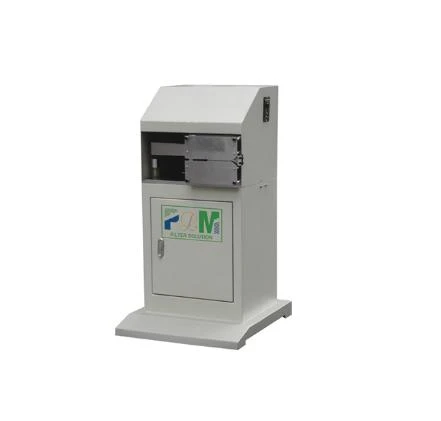Des . 25, 2024 09:40 Back to list
Innovative Solutions for Filter Fabric Applications in Various Industries
The Significance of Filter Fabric Products in Modern Industries
In today’s manufacturing and industrial landscape, efficiency and sustainability are at the forefront of many organizational strategies. One of the key players in achieving these goals is filter fabric products. These textiles play an essential role in various sectors, including environmental management, construction, and agriculture, by facilitating efficient filtration and separation processes.
What Are Filter Fabric Products?
Filter fabric products refer to specially designed textiles that are engineered to separate solids from liquids or gases. They are typically made from a variety of materials, including synthetic fibers like polyester and polypropylene, as well as natural fibers such as cotton. The choice of material depends on the specific application requirements, such as temperature tolerance, chemical resistance, and the physical properties of the substances being filtered.
Applications Across Industries
1. Environmental Protection One of the most significant uses of filter fabric is in water treatment and wastewater management. These products help remove contaminants from water streams, ensuring that treated water meets safety standards for discharge or reuse. They also play a crucial role in air filtration systems, where they capture particulate matter and other pollutants, contributing to cleaner air and healthier environments.
2. Construction In the construction industry, filter fabrics are employed in drainage systems and erosion control. Geotextiles, a type of filter fabric, are used to separate soil from aggregates, allowing water to flow through while preventing the passage of fine particles. This application is essential for maintaining the integrity of landscapes and reducing erosion caused by water runoff.
3. Agriculture Filter fabrics are increasingly being utilized in agricultural practices for irrigation systems. They help filter out debris and sediment, ensuring that water used for irrigation remains clean and effective. Additionally, these fabrics are essential in crop protection, where they are used in greenhouses to shield plants from pests while allowing essential sunlight to penetrate.
4. Pharmaceutical and Food Processing Industries in the pharmaceutical and food sectors rely on stringent filtration standards to ensure product purity and safety. Filter fabrics offer a reliable means of separating solid contaminants from liquids in varied processes, including brewing, dairy production, and drug formulation.
filter fabric product

Benefits of Using Filter Fabric Products
The use of filter fabric products comes with numerous benefits
- Enhanced Efficiency By providing a reliable means of filtration, these fabrics improve operational efficiency across various processes. They reduce maintenance time and costs by ensuring optimal performance of equipment like pumps and clarifiers.
- Cost-Effectiveness Investing in high-quality filter fabrics can lead to significant long-term savings. They help minimize waste and downtime caused by equipment malfunction due to clogging or contamination.
- Environmental Sustainability Utilizing filter fabrics in waste management and water treatment contributes to sustainability goals. They help reduce pollution and promote the recycling and reuse of water and materials, aligning with global initiatives aiming for reduced environmental impact.
- Versatility Filter fabrics are available in a range of compositions, sizes, and configurations to meet specific industry needs. This versatility allows for customization based on unique operational demands, ensuring the right filter is applied for optimum results.
Conclusion
In summary, filter fabric products are integral to the efficiency and sustainability of modern industrial practices. From environmental protection and construction to agriculture and food processing, these textiles offer essential filtration solutions that enhance productivity while supporting eco-friendly initiatives. As industries continue to evolve, the demand for versatile and effective filter fabric solutions is likely to grow, reinforcing the pivotal role these products play in shaping a sustainable future.
Investing in innovative filtering technologies, including high-quality filter fabric products, is essential for any organization striving for excellence in performance and environmental responsibility. As we look ahead, the continuous advancement in filter fabric technologies will no doubt open new avenues for optimizing processes and ensuring cleaner, safer environments for generations to come.
-
Premium Active Carbon Air Filter for Air Purifiers - Odor Removal
NewsAug.21,2025
-
Premium Acrylic-Resin Air Filter Paper in Roll | High Efficiency
NewsAug.19,2025
-
PLAB-6 A B Two Compounds Filter End Cap Gluing Machine-Hebei Filter Man|Precision Gluing,Automated Production
NewsAug.18,2025
-
PLAB-6 A B Two Compounds Filter End Cap Gluing Machine - Hebei Filter Man Automotive Parts Trading Co., Ltd | Adjustable Gluing Parameters, Automated Precision
NewsAug.18,2025
-
PLAB-6 A/B Two Compounds Filter End Cap Gluing Machine-Hebei Filter Man|Precision Engineering&Efficiency
NewsAug.18,2025
-
Active Carbon Air Filter for Purifier: Superior Air Quality & Odor Removal
NewsAug.18,2025
